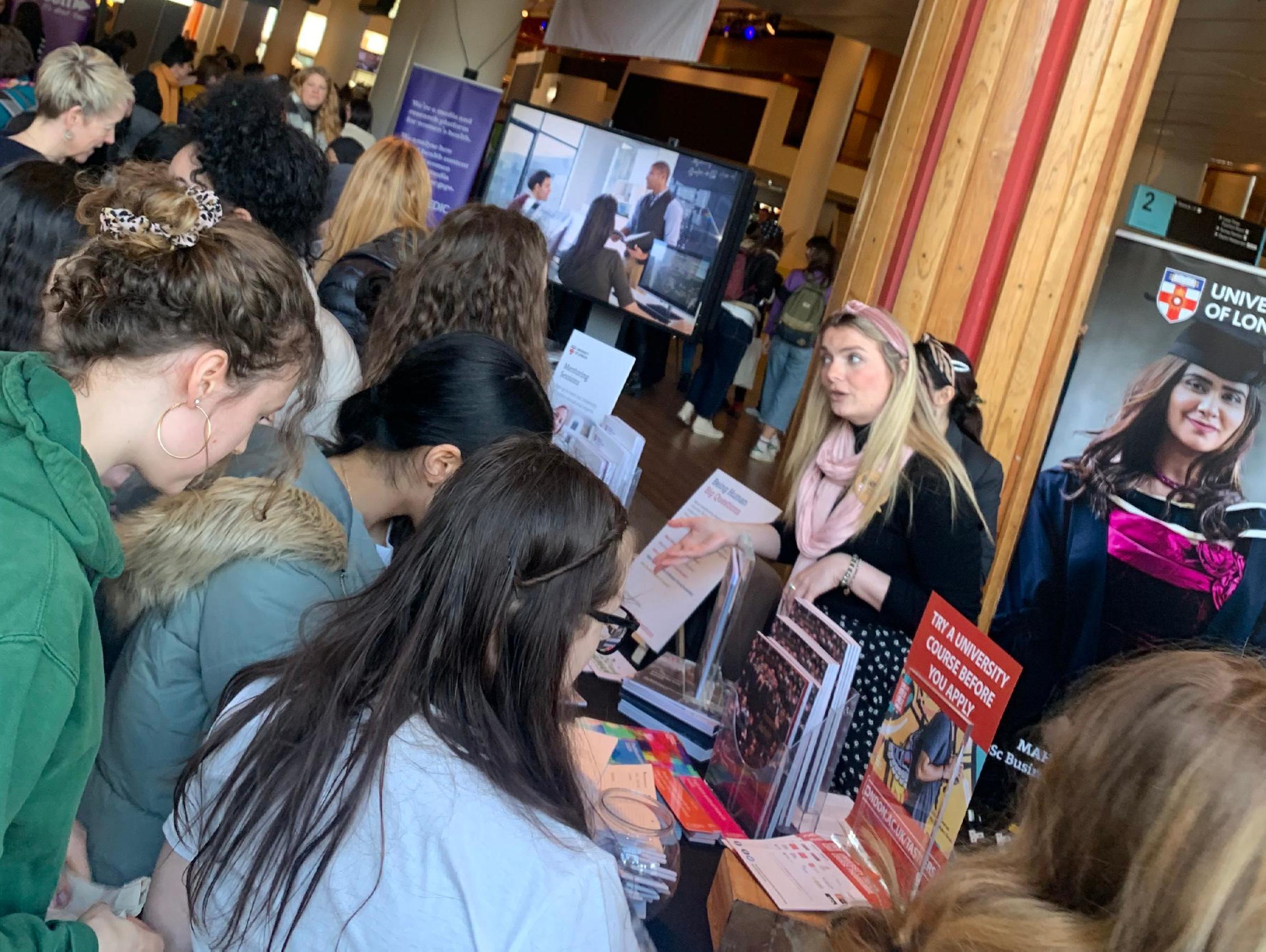
3 minute read
2.Overview of University of London’s equality and inclusion work in 2019-20
In 2019-20, against the backdrop of the COVID-19 pandemic and its disproportionate impact on Black, Asian and ethnically diverse communities, a resurgence of the Black Lives Matter movement occurred (in response to the murder of George Floyd and numerous other killings), resulting in closer scrutiny of equality practices in the higher education sector. The collective response of the University’s senior leadership team, staff and students was to reflect on the University’s legacy and take action to ensure that equality issues in relation to race, gender, disability, sexual orientation, and other protected characteristics were comprehensively addressed. For the University’s equality and inclusion work, 2019-20 is a year that focused on developing an organisationwide awareness of why equality matters and developing an understanding of our individual roles and collective responsibilities in addressing the agenda. Through listening to staff experiences and concerns about equality, and working in partnership with the University’s Equality Group (REG), the Vice Chancellor’s Executive Group strives to develop and deliver robust and targeted interventions to ensure that the University becomes a more inclusive place for staff and students from Black, Asian and minority ethnic communities. In June 2020, the Vice-Chancellor (VC), Professor Wendy Thomson, reaffirmed the University’s commitment to addressing racism and promoting race equality. The University’s REG worked with staff and senior leaders to identify actions that the University can take in its role as an employer to make the workplace race inclusive. The University agreed to take forward all the suggested actions, and some of these actions have been completed. For example, a standard line in recruitment advertisements encouraging applications from Black, Asian, and Minority Ethnic (BAME) staff (who are underrepresented in certain levels) has now been adopted for all new roles. There has been renewed effort to ensure diverse recruitment and selection panels, and Unconscious Bias and Race Awareness training for all staff has been completed. Other actions, such as the review of the approach to staff appraisals, require significant further work and will run into 2021. The University has also taken several Internal actions to respond to the EHRC’s report on racism in the higher education sector and to ensure compliance with the UUK/OfS requirements on harassment. These include revising and consolidating internal student complaints procedures, updating the relevant UoL Ordinances and revising the staff code of conduct related to relationships. Plans are also in place to facilitate internal training on racial harassment.
The Vice-Chancellor, Professor Wendy Thomson is a member of the UUK’s Advisory Group on Tackling Racism and has contributed to development of guidance for the sector on good practice in addressing harassment. The University of London’s initiative to enable more consistent reporting and investigation of racist incidents across Member Institutions of the University of London is mentioned as a case study in the UUK guidance. On the academic side, colleagues across the School of Advanced Study (SAS) have developed an inspiring programme of events and initiatives with a focus on race equality. These include the creation of an oral history of the Windrush Generation, the organisation of critically acclaimed seminar series on Black British History and the legacies of imperialism, national efforts to decolonise the History curriculum and the international Being Human festival that expands access to the humanities. In addition, SAS is committed to inspiring research, providing resources, and facilitating conversations that promote the understanding and elimination of systemic racism, discrimination, and inequality. SAS actively supports the Solidarity Statement of the Consortium of Humanities Centres and Institutes, of which it is a member. The Institute of English Studies, with financial assistance from the University’s Convocation Trust, has established a Postdoctoral Research Fellowship as part of its Toolkit for Diversity and Inclusion in English Studies (TIDE) programme. The Fellow will explore forgotten BAME histories and participate in initiatives to decolonise the discipline, both within IES and externally with partners University English, the English Association, the Postcolonial Studies Association, and the University of East Anglia. The University has also reviewed its governance framework for inclusion. Consequently, the renamed Equality and Inclusion Committee will work towards a more inclusive committee membership with the addition of independent external experts. Actions are also in place for the Nominations and Governance Committee to plan for more diverse representation across all committees in the new governance structure.




